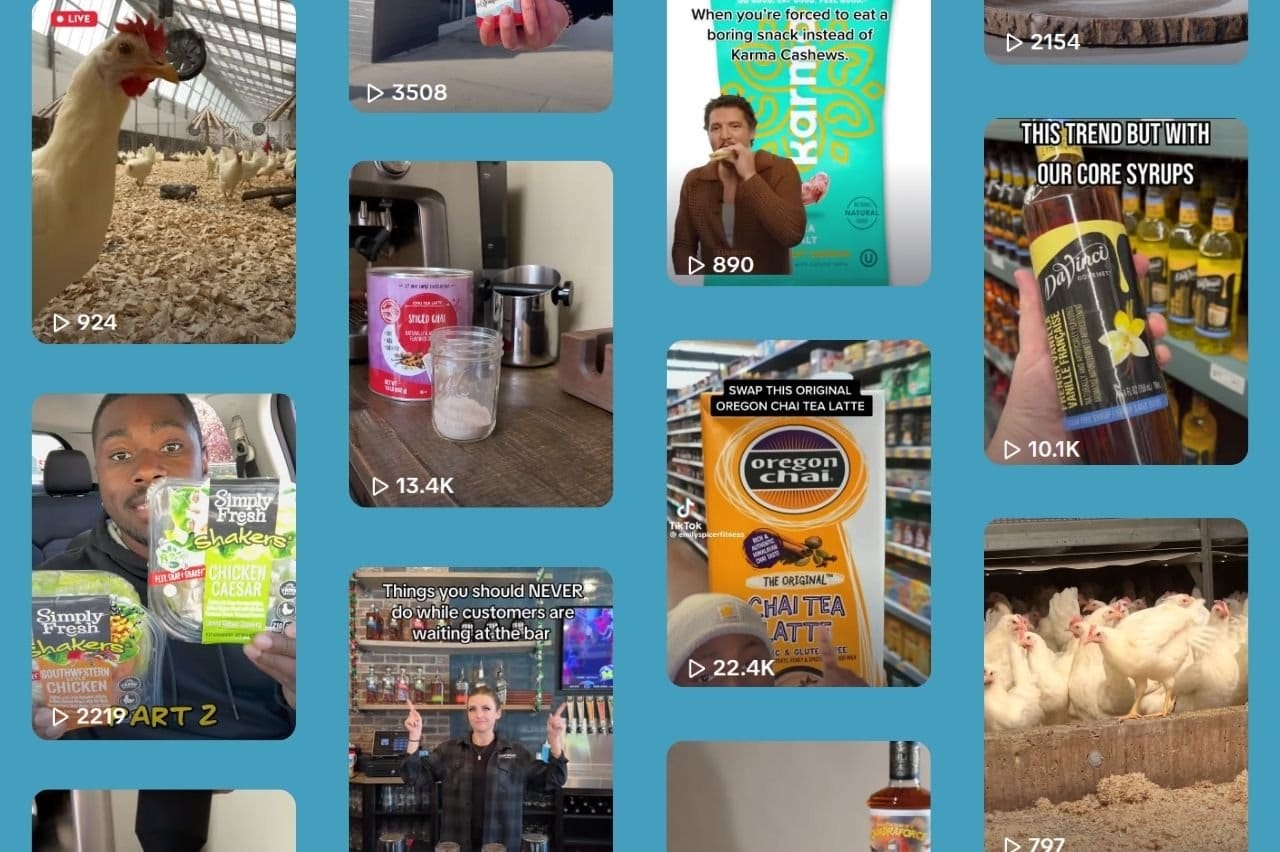How to Master Cannabis Marketing in the Food & Beverage Industry

Every day, depending on the legality of the state, CBD or THC-infused locations are popping up in nearly every shopping center. Cannabis marketing is officially ‘big business’… and it’s only getting more competitive in 2024.
It’s difficult to ignore this developing market within the wellness industry, and food & beverage brands should pay close attention to developments in the cannabis space. These functional foods and beverages have gained significant attention for their potential recreational and health benefits.
Cannabis Marketing Evolves with Industry
“The cannabis-infused food and beverage industry is expected to surpass $47.2 billion through 2028, with a CAGR of 21.2% over the forecast period. ”
— Visual Capitalist
Over the last decade, large corporations have jumped onto the CBD-infused market to attract clientele under regulatory infrastructure across most states. These companies shifted the viewpoint from “mind-altering” to “better for you” in marketing these products.
However, these offerings face a unique set of challenges in social media restrictions that limit their ability to truly connect with their target audience effectively. And that hasn’t changed in 2024. These hazy regulations stem from the uncertain legal status of cannabis-related products, leading to limitations on advertising and content promotion.
The Impact of Restrictions on Engagement
Hemp-derived CBD with less than 0.3% THC was federally legalized in the U.S. by the 2018 Farm Bill. Still, the FDA hasn’t classified CBD as a dietary supplement. This situation forces the hands of several social media platforms to ban or restrict CBD ads. Making matters more confusing, enforcing these rules is inconsistent.
The inconsistent social media environment significantly impacts the engagement potential of CBD and THC-infused food and beverage brands.
“97% of cannabis-related start-ups face content deletion or suspension, indicating the severity of the issue. ”
— Cannabis Drinks Expo
Simply put, Cannabis marketing isn’t something that can be pursued without paying close attention to national and international regulations.
This directly affects a brand’s ability to maintain an active and interactive online presence, hindering customer engagement and loyalty. Platforms have unique rules for advertising CBD. Some completely ban it; others keep cannabinoids at a distance while still attempting to garner the industry’s ad dollars.
Biggest Conflicts In Advertising CBD Beverages
Primarily, there are two obstacles social media marketers face when trying to develop a strategy for CBD Beverages.
Obstacle 1: Advertising Restrictions
Strongest advertising regulations on social media platforms are one of the most significant hurdles for CBD and THC-infused food and beverages. While CBD is legal in many states, its association with cannabis often results in content removal or account suspension. This creates a roadblock for businesses aiming to showcase their products to a wider audience.
Obstacle 2: Content Limitations
Creating engaging and informative content is crucial for establishing brand identity and connecting with consumers. However, the restrictions on sharing educational content about CBD and THC on social media hinder the dissemination of accurate information. Brands must tiptoe around terminologies and avoid making health claims, limiting their ability to educate potential customers about the benefits of their products.
Strategies for Overcoming Cannabis Marketing Challenges
While social media restrictions pose substantial challenges, CBD and THC-infused food and beverage brands have adopted innovative strategies to navigate these obstacles.
Leveraging user-generated content, collaborating with influencers in the wellness and cannabis spaces, and creating compliant ad campaigns are some approaches that have proven effective in maintaining a digital presence.
“It’s important to note that paid campaigns are still tricky, but organic accounts are accessible. Still, they cannot be associated with paid ads linked to the CBD beverage landing page. ”
Other solutions CBD and THC brands should prioritize are an email list and an SMS text message marketing list. We recommend cannabis brands use social media to build these private lists to market their products freely without restrictions.
The Role of Influencer Partnerships
In the realm of social media marketing, influencer partnerships have emerged as a powerful tool for promoting products and building brand credibility. Many CBD and THC-infused food and beverage brands have turned to influencers who align with their values and target audience.
Since influencers are in control of their content, they technically aren’t considered advertisers. Therefore, they can post about your CBD or THC beverages without any repercussions. These influencers can share personal experiences, reviews, and educational content, circumventing the limitations imposed by traditional advertising methods.
You’ll rarely find influencers who solely post CBD. However, lifestyle influencers or cannabis influencers are online in abundance.
Looking Beyond Social Media
While social media platforms offer valuable opportunities for brand exposure, CBD and THC-infused beverage companies are diversifying their marketing efforts. Email marketing, search engine optimization (SEO), and collaborations with wellness events are alternative avenues for reaching their audience without the constraints of social media restrictions. In particular, SEO should involve insights into the product, information on different types of drinks, health benefits, and how to order these beverages.
“Driven ad traffic should lead to a landing page with educational content.”
Linking to articles, testimonials, and scientific studies should avoid discussing potential health benefits since it could be viewed as drug claims concerning the product. The display will also allow brands to educate on their offerings. Lead magnets can also be offered in exchange for an email address.
Note: Directly referring to any sales is advised against.
Out Of The Box Advertising
If a brand is ostracized from social media advertising, brands will shift their focus to a native form of advertising. This could include placements that appear like regular content in digital publications.
“Like native advertising, content syndication helps republish your content on relevant third-party websites. Content syndication should focus on the various CBD and THC subcultures. ”
Finally, affiliate marketing, where publishers generate traffic to your website. Because affiliate fees are usually performance-based, working with affiliates is a low-risk way to generate quality traffic.
Be In The Know
With a shifting industry, it’s important for social media marketers to always be on top of regulations.
“Local, state, and federal laws shift constantly, creating market volatility for CBD and THC food and beverages. Information about CBD advertising and marketing is subject to change. ”
You can find information about the cannabis space, both CBD and THC, by researching cannabis news resources. Some include High Times, Canna Law Blog, and Marijuana Business Daily.
Currently, because CBD and THC products are not legally classified as approved medication, advertising is highly restrictive, especially on Google and Facebook—the top dogs of the digital advertising space.


